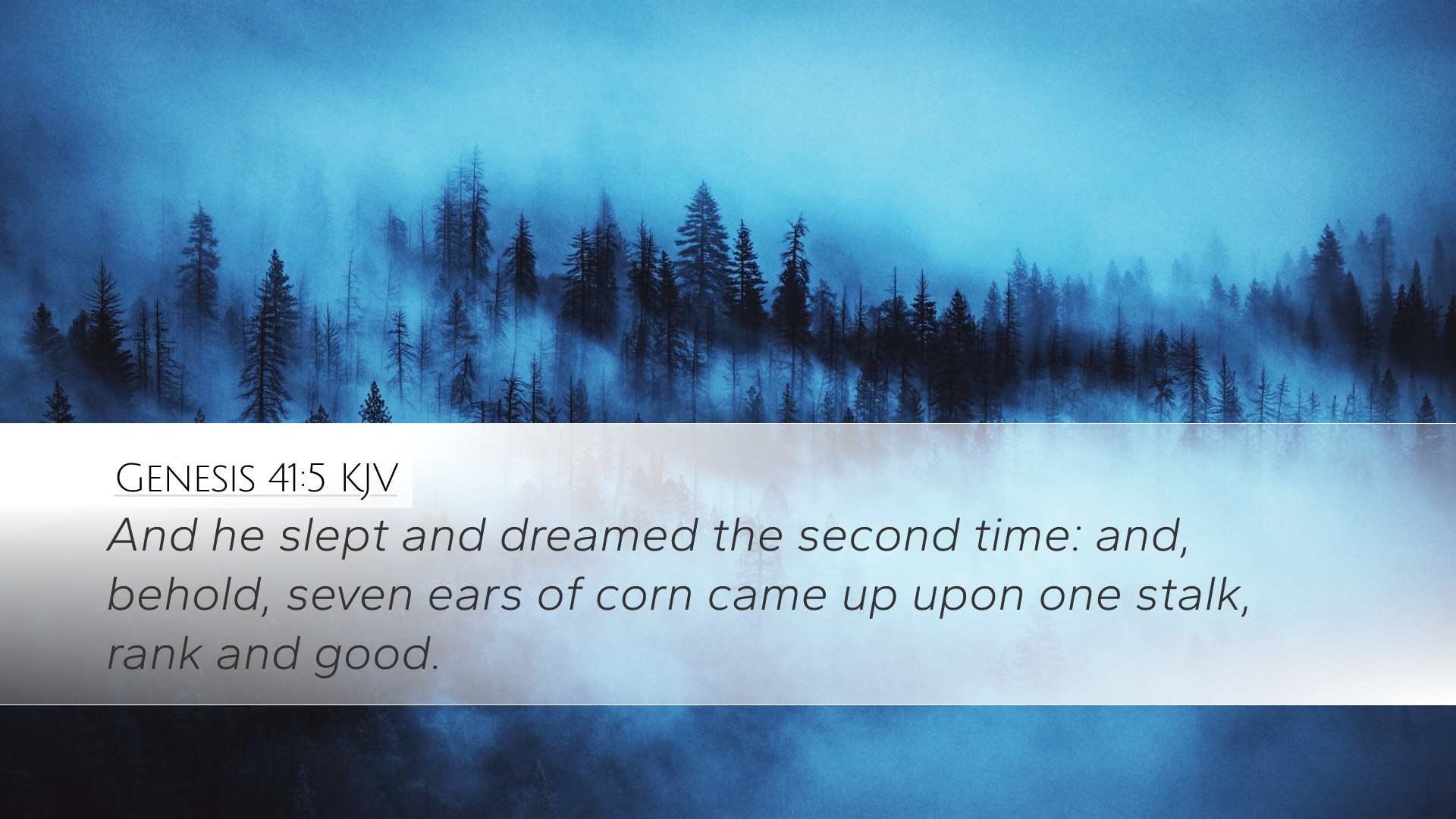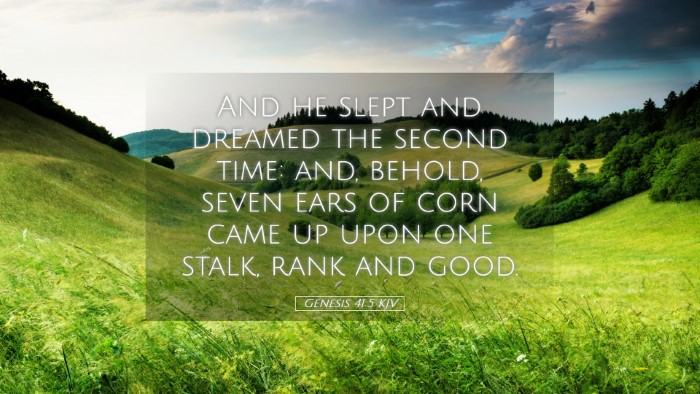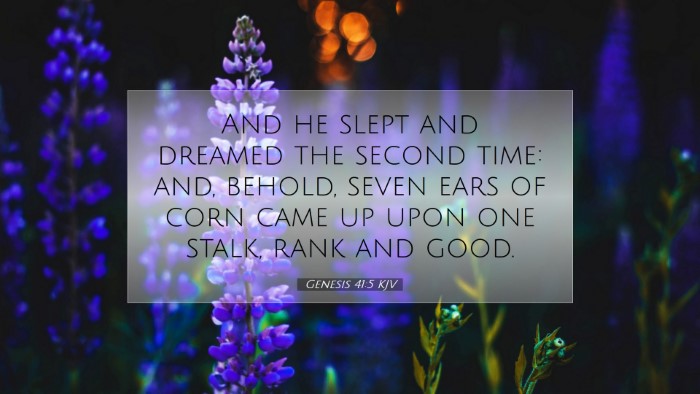Commentary on Genesis 41:5
Verse Context: Genesis 41:5 states, "And he slept and dreamed the second time: and, behold, seven ears of corn came up upon one stalk, rank and good."
This verse is part of the larger narrative concerning Joseph's rise to power in Egypt. It follows a dream that Pharaoh has, which Joseph is destined to interpret. Here, we examine the significance of dreams in biblical understanding, particularly in relation to divine revelation and providence.
Significance of Dreams in the Bible
Historical Context: Throughout Scripture, dreams often serve as vehicles for divine communication. As Albert Barnes notes, “Dreams were regarded as messages from God, especially in antiquity.” In Genesis, we see dreams play a pivotal role not just in Joseph’s life, but throughout the biblical narrative, including the dreams of Jacob, the Midianite, and even the dreams of Pharaoh himself.
Analysis of the Dreams
Joseph's Role as Dream Interpreter
Matthew Henry emphasizes Joseph's unique gift from God to interpret dreams, “Joseph had a good reason to expect that the interpretation would be an occasion of his advancement and a means of saving his family.” This speaks volumes about Joseph's faithfulness and connection to God as he prepares to help Pharaoh understand the implications of his dreams.
Symbolism of the Seven Ears of Corn
The imagery presented in Genesis 41:5—the seven ears of corn—holds significant agricultural and metaphysical meaning. Albert Barnes provides insight into the symbolism: “The seven ears represent abundance, prosperity, and divine provision.” The choice of corn, a staple food, indicates God’s provision for His people during times of plenty and scarcity.
The Divine Message within the Dreams
Adam Clarke points out that “each dream serves as a prophetic revelation, announcing forthcoming events in Egypt.” It encapsulates the dual nature of the dreams—danger intertwined with opportunity. This duality is critical in understanding God's sovereignty in human affairs and how He prepares His people for what is to come.
Theological Reflections
God's Sovereignty and Providence
The events surrounding Joseph and Pharaoh underline the profound theological principle of divine sovereignty. Genesis 41:5 is not merely about a dream but signifies God’s governance over the affairs of nations.
As noted by Matthew Henry, “These dreams were a precursor to God’s plans for Egypt and Israel.” God uses dreams to communicate His will, suggesting that earthly rulers are under divine authority, which is a theme resonating throughout the entirety of Scripture.
Practical Applications
Implications for Leadership and Governance
For pastors and leaders, this verse serves as a reminder of the importance of discerning God's voice within their leadership practices. Just as Pharaoh was enjoined to heed divine warnings, leaders today are encouraged to seek God's counsel in their decision-making processes.
Encouragement in Adversity
The narrative surrounding Joseph is also one of perseverance amid trials. While Joseph faced significant hardships, his faith in God’s plan never wavered. This serves as an encouragement for those in ministry or undergoing personal trials, reinforcing the idea that God is working, even in times of adversity.
Conclusion
Genesis 41:5 exemplifies the integration of the divine and the mundane; it encourages believers to look for God’s hand in everyday occurrences. The dreams are not just visions; they are intersections where the human experience meets divine intention.
As we reflect on this text, may we be compelled to pursue understanding the heart of God, recognizing that He speaks in various ways—sometimes in dreams, sometimes in silence, always with purpose. In this way, Genesis 41:5 is not just a historical account but a timeless reminder of how God orchestrates the events of our lives.


